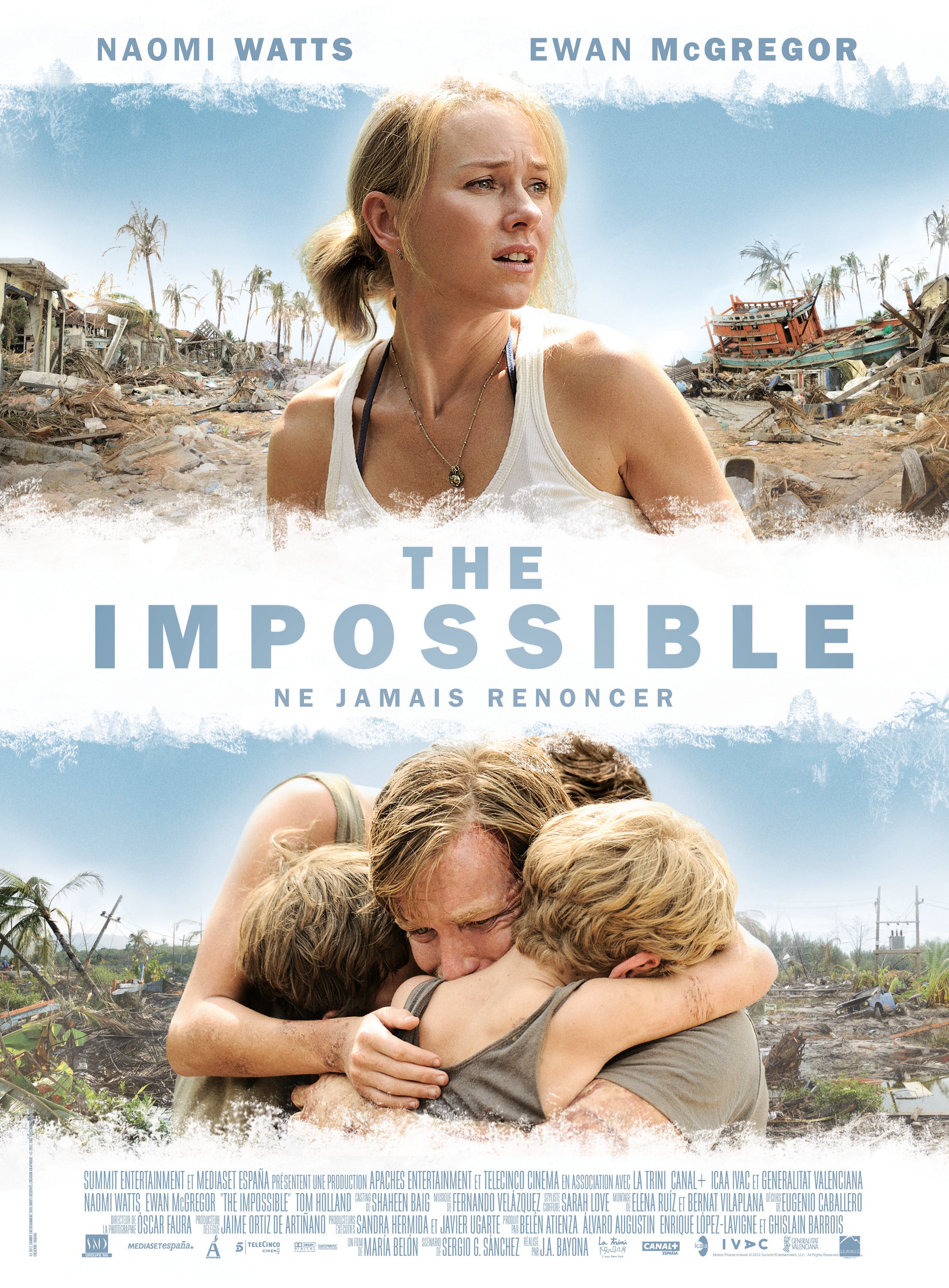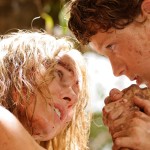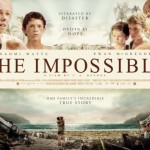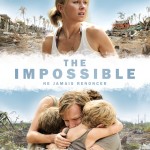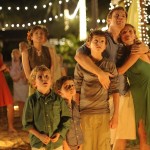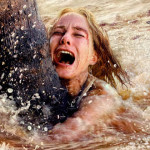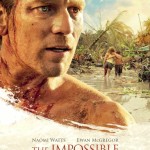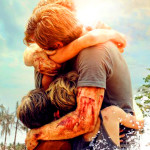In a parallel universe The Impossible could have been called something like Lost and Found, but somehow calling what is in essence a true story (even if it is “based on” and includes a few fanciful fictions along the way) The Impossible rings true, by virtue of portraying survival driven by family bonds in impossible circumstances.
What would we do faced with an unparalleled disaster like the 2004 Boxing Day tsunami? Until it happens we have no way of knowing. Easy to say we would be calm and help survivors when the adrenalin kicks in, but for all we know any of us may be paralysed by shock and be worse than useless. The truly brave are those with ice running through their veins, those who can see what needs to be done and can communicate it to the ones in headless chicken mode. It is a rare skill and we may never discover whether or not we possess it – and hopefully we never get the chance to find out. The very thought of having to deal with such a major trauma, personal and environmental, is more than many could bear.
Forget the clean barely-a-hair-out-of-place Hollywood disaster movies like Towering Inferno, this is the real thing – waves 30m high, everything immersed in vast quantities of filthy water carrying debris as big as cars, stuff that can kill if you happen to be in the wrong place, water that drowned thousands. In fact, the US Geological Survey estimated that 227,898 were killed by the earthquake and tsunami, disaster on an almost unimaginable scale. Death, destruction and terrible injury are portrayed, but sympathetically and without voyeuristic glorification of the gory details – only what is required for the plot and typical of the reality in which these people found themselves.
Rather than depict the whole story, Spanish director (Juan Antonio Bayona) and screenwriter (Sergio Sanchez) focus on the human story of a family separated by the tsunami and overcoming insuperable odds to stay alive, to be reunited and to help others en route to their own flight out of Thailand. That five of them lived to tell the tale is remarkable enough, but the positive qualities they demonstrated en famille is what makes this a film worth making. There is remarkable little context setting done before we hit the tsunami, but then you know this is a happy family, one that will withstand every disaster by virtue of the bonds of love and unity.
Three factors make this movie not only work but touch the human soul at every level: most obviously, the special effects are remarkable, such that you believe you are in the middle of a tsunami. The scenes with a scale model as the power of the waves flood over the hotel complex is stunning, awesome, as is the recreation of the aftermath.
Next, consider the sympathetic direction from Bayona, which goes a long way towards the credibility and avoiding the trap of over-emoting. The reunion scene could have got way over the top, but Bayona gets the balance just about right.
Finally, there are remarkable performances all round, but most especially the phenomenal depth and maturity displayed by young Tom Holland in his performance as eldest son Lucas. Granted he has around him the likes of Naomi Watts and Ewan McGregor to help him raise his game, but he proves himself the equal of both.
That said, both leads achieve great things by sticking to authentic emotions but avoiding the sin of over-emoting apart from when the shock of the reality truly strikes. Watts’s character suffers appalling injuries but maintains her dignity throughout, in spite of what must have been hours spent in make-up, suffering hallucinations and getting close to death with what we must assume, since we only ever see it as a fresh injury minus a chunk of flesh, is a gangrenous leg. There are dreamy sequences under water, both in the initial event and as Maria goes under with the anaesthetic. Both times we are led to believe she is dying, but in capable hands she is fine – but then the fear factor is what makes people give up.
So in essence, a very moving family drama set against the most appalling and extreme conditions you could imagine. The power of this movie is self-evident. It is strong, moving and with well-judged characters, based approximately on the real people.
However, it’s worth saying that like most movies that turn complexity into a simple story, this movie is flawed. The timing of some events seemed out of tune with reality. I also felt that the transition of Maria Bennet from being at death’s door and looking like a zombie in Dawn of the Dead via one surgical procedure into a smiling patient with a rosy pallor is unrealistic at every level.
And for that matter, transporting the Bennets by private jet to Singapore while all around people suffered displacement and the loss of everything distracted from the humility intrinsic to most of the script – that they were just another family trying to stay together, that all human life has the same value. Not that I begrudge them the insurance flight out, but the vast majority of tourists did not get anything like that much help, and as for the locals caught up in the tsunami, a shack and a bowl of rice is as much as they could ever hope for by way of compensation in the relief effort.
To those who survived the tsunami, I wish you a happy, prosperous and pain-free life. It could be anyone, so we need to thank our lucky stars that the worst we ever get is a bit of wind, rain and snow.

